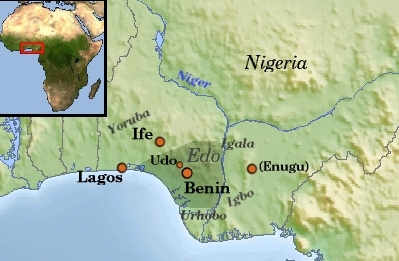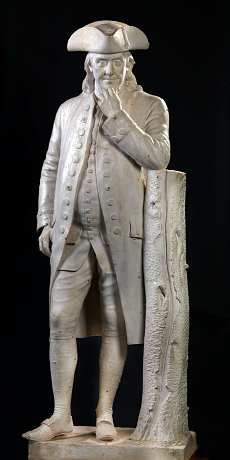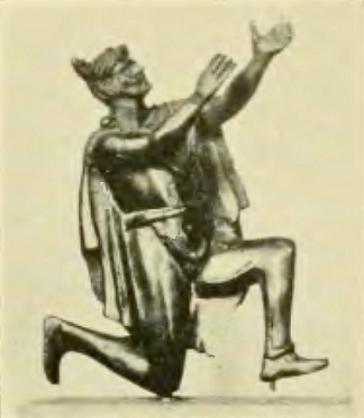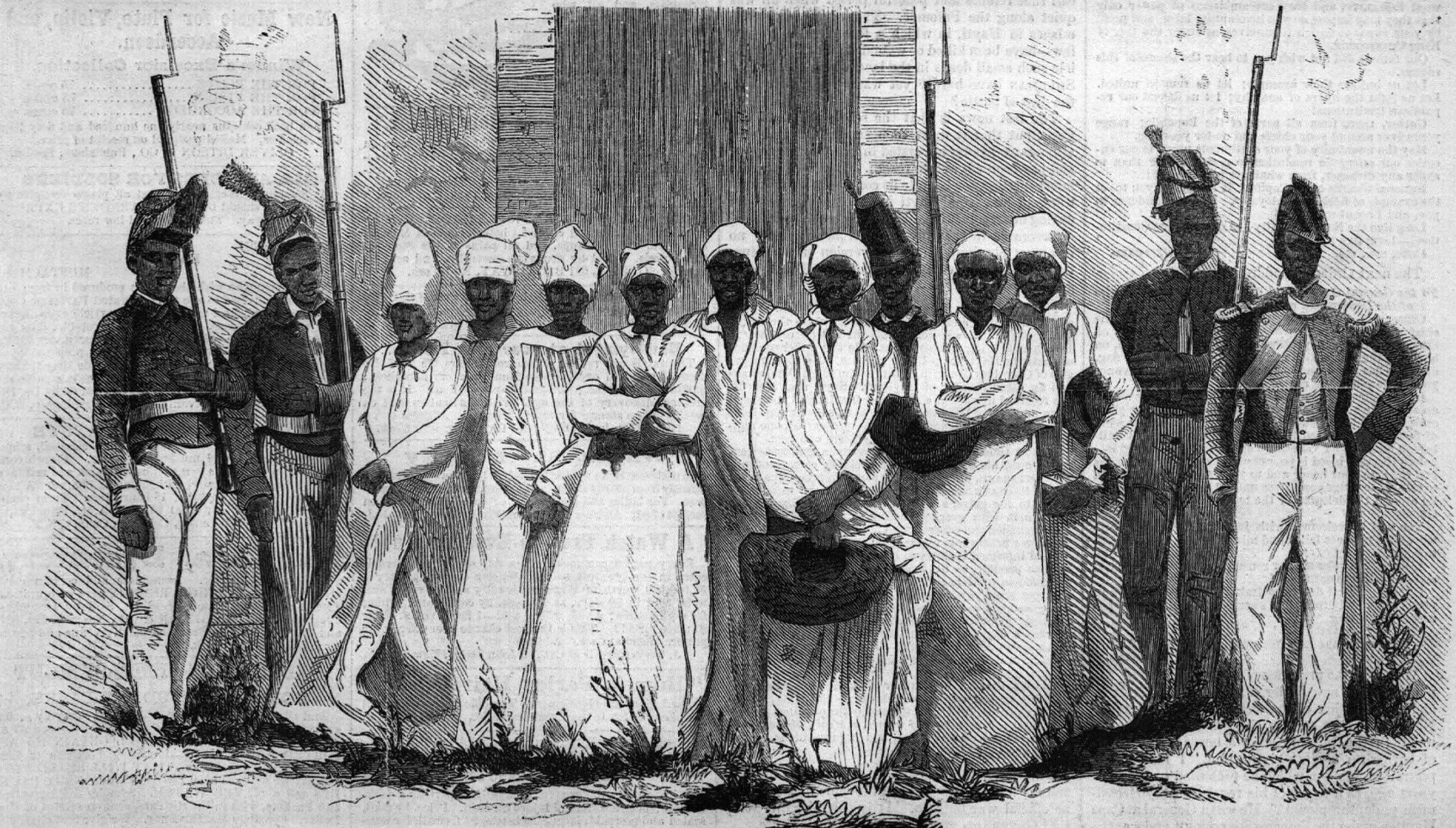|
Orixá Oba
Orishas (singular: orisha) are divine spirits that play a key role in the Yoruba religion of West Africa and several religions of the African diaspora that derive from it, such as Haitian Vaudou, Cuban Santería and Brazilian Candomblé. The preferred spelling varies depending on the language in question: òrìṣà is the spelling in the Yoruba language, orixá in Portuguese, and orisha, oricha, orichá or orixá in Spanish-speaking countries. In the Lucumí tradition, which evolved in Cuba, the orishas are synchronized with Catholic saints, forming a syncretic system of worship where African deities are hidden behind Christian iconography. This allowed enslaved Africans to preserve their traditions under colonial religious persecution. According to the teachings of these religions, the orishas are spirits sent by the supreme creator, Olodumare, to assist humanity and to teach them to be successful on ''Ayé'' (Earth). Rooted in the native religion of the Yoruba people, most ... [...More Info...] [...Related Items...] OR: [Wikipedia] [Google] [Baidu] |
Yoruba Religion
The Yorùbá religion (Yoruba language, Yoruba: Ìṣẹ̀ṣe), West African Orisa (Òrìṣà), or Isese (Ìṣẹ̀ṣe), comprises the traditional religious and spiritual concepts and practice of the Yoruba people. Its homeland is in present-day Southwestern Nigeria and Southern Benin, which comprises the majority of the States of Nigeria, states of; Oyo State, Oyo, Ogun State, Ogun, Osun State, Osun, Ondo State, Ondo, Ekiti State, Ekiti, Kwara State, Kwara, Lagos State, Lagos and parts of Kogi State, Kogi in Nigeria, the Departments of Benin, Departments of; Collines Department, Collines, Ouémé Department, Oueme, Plateau Department, Plateau in Benin, and the adjoining parts of central Togo, commonly known as Yorubaland (). It has become the largest indigenous African tradition / belief system in the world with several million adherents worldwide. It shares some parallels with the Vodun practised by the neighbouring Fon people, Fon and Ewe people, Ewe peoples to its west ... [...More Info...] [...Related Items...] OR: [Wikipedia] [Google] [Baidu] |
Bini People
The Edo people, also referred to as the Benin people, are an Edoid-speaking ethnic group. They are prominently native to seven southern local government areas of Edo State, Nigeria. They are speakers of the Edo language and are the descendants of the founders of the Benin Kingdom, Ogiso Igodo. They are closely related to other Edoid ethnic groups, such as the Esan, the Etsakọ, the Isoko and Urhobo as well as other southern ethnic groups. The names ''Benin'' and ''Bini'' are Portuguese corruptions, ultimately from the word ''Ubini'', which came into use during the reign of Oba (ruler) Ewuare, c. 1440. ''Ubini'' is an Edo word meaning 'livable', used by Pa Idu, the progenitor of the Edo state people, to describe the area found as a livable locale during their sojourn from lower Egypt. ''Ubini'' was later corrupted to ''Bini'' by the mixed ethnicities living together at the centre; and further corrupted to ''Benin'' around 1485, when the Portuguese began trade relation ... [...More Info...] [...Related Items...] OR: [Wikipedia] [Google] [Baidu] |
Energy
Energy () is the physical quantity, quantitative physical property, property that is transferred to a physical body, body or to a physical system, recognizable in the performance of Work (thermodynamics), work and in the form of heat and light. Energy is a Conservation law, conserved quantity—the law of conservation of energy states that energy can be Energy transformation, converted in form, but not created or destroyed. The unit of measurement for energy in the International System of Units (SI) is the joule (J). Forms of energy include the kinetic energy of a moving object, the potential energy stored by an object (for instance due to its position in a Classical field theory, field), the elastic energy stored in a solid object, chemical energy associated with chemical reactions, the radiant energy carried by electromagnetic radiation, the internal energy contained within a thermodynamic system, and rest energy associated with an object's rest mass. These are not mutual ... [...More Info...] [...Related Items...] OR: [Wikipedia] [Google] [Baidu] |
Peace
Peace is a state of harmony in the absence of hostility and violence, and everything that discusses achieving human welfare through justice and peaceful conditions. In a societal sense, peace is commonly used to mean a lack of conflict (such as war) and freedom from fear of violence between individuals or groups. Promotion of peace is a core tenet of many philosophies, religions, and ideologies, many of which consider it a core tenet of their philosophy. Some examples are: religions such as Buddhism and Christianity, important figures like Gandhi, and throughout literature like " Perpetual Peace: A Philosophical Sketch" by Immanuel Kant, " The Art of Peace" by Morihei Ueshiba, or ideologies that strictly adhere to it such as Pacifism within a sociopolitical scope. It is a frequent subject of symbolism and features prominently in art and other cultural traditions. The representation of peace has taken many shapes, with a variety of symbols pertaining to it based on ... [...More Info...] [...Related Items...] OR: [Wikipedia] [Google] [Baidu] |
Moral Character
Moral character or character (derived from ) is an analysis of an individual's steady Morality, moral qualities. The concept of ''character'' can express a variety of attributes, including the presence or lack of virtues such as empathy, courage, Cardinal virtues, fortitude, honesty, and loyalty, or of good behaviors or habits; these attributes are also a part of one's soft skills. Moral character refers to a collection of qualities that differentiate one individual from anotheralthough on a cultural level, the group of moral behaviors to which a social group adheres can be said to unite and define it culturally as distinct from others. Psychologist Lawrence Pervin defines moral character as "a disposition to express behavior in consistent patterns of functions across a range of situations". The philosopher Marie I. George refers to moral character as the "sum of one’s moral habits and dispositions". Aristotle said, "we must take as a sign of states of character the pleasure ... [...More Info...] [...Related Items...] OR: [Wikipedia] [Google] [Baidu] |
Prayers
File:Prayers-collage.png, 300px, alt=Collage of various religionists praying – Clickable Image, Collage of various religionists praying ''(Clickable image – use cursor to identify.)'' rect 0 0 1000 1000 Shinto festivalgoer praying in front of the Tagata fertility shrine rect 1000 0 2000 1000 Balinese Hindu bride praying during a traditional wedding ceremony rect 2000 0 3000 1000 Muslim pilgrim praying at the Masjid al-Haram rect 0 1000 1000 2000 Catholic Trappist monk praying before a crucifix rect 1000 1000 2000 2000 Ethiopian priest praying in Lalibela rect 2000 1000 3000 2000 Buddhists praying in Leh rect 0 2000 1000 3000 Sikh praying in Front of the Golden Temple in Amritsar rect 1000 2000 2000 3000 Members of the Mengjia Longshan Temple Association gather for a traditional Chinese prayer service rect 2000 2000 3000 3000 Jewish people praying at the Western Wall Prayer is an invocation or act that seeks to activate a rapport with an object of worship through del ... [...More Info...] [...Related Items...] OR: [Wikipedia] [Google] [Baidu] |
Ase (Yoruba)
Ase may refer to: * Ase, Nigeria, a town in Delta State, Nigeria * -ase, a suffix used for the names of enzymes * Aṣẹ, a Yoruba philosophical and religious concept * American Sign Language American Sign Language (ASL) is a natural language that serves as the predominant sign language of Deaf communities in the United States and most of Anglophone Canadians, Anglophone Canada. ASL is a complete and organized visual language that i ... (ISO 639-3 code: ase) See also * Åse (other) * ASE (other) {{disambiguation ... [...More Info...] [...Related Items...] OR: [Wikipedia] [Google] [Baidu] |
Destiny
Destiny, sometimes also called fate (), is a predetermined course of events. It may be conceived as a predetermined future, whether in general or of an individual. Fate Although often used interchangeably, the words ''fate'' and ''destiny'' have distinct connotations. The earliest known mention of the term or its meaning is found on a document written in cuneiform script that reports on the mythical Tablet of Destinies. It probably refers to a political treaty between three groups of Sumerian gods (cf. the Epic Athra Hasis), whereby only the leader has the power to restore the things he once determined to their original state. Todays traditional usage defines fate similar: as a power or agency that predetermines (rules) the attributes of a thing or set of events positively or negatively affecting someone or a group. Other possibilities are that of an idiom, to tell someone's fortune, or simply the result of chance and events. In Hellenistic civilization, the chaotic and u ... [...More Info...] [...Related Items...] OR: [Wikipedia] [Google] [Baidu] |
Soul
The soul is the purported Mind–body dualism, immaterial aspect or essence of a Outline of life forms, living being. It is typically believed to be Immortality, immortal and to exist apart from the material world. The three main theories that describe the relationship between the soul and the body are Interactionism (philosophy of mind), interactionism, Psychophysical parallelism, parallelism, and epiphenomenalism. Anthropology, Anthropologists and Psychology, psychologists have found that most humans are naturally inclined to believe in the existence of the soul and that they have interculturally distinguished between souls and bodies. The soul has been the central area of interest in philosophy since Ancient history, ancient times. Socrates envisioned the soul to possess a rational faculty, its practice being man's most godlike activity. Plato believed the soul to be the person's real self, an immaterial and immortal dweller of our lives that continues and thinks even after d ... [...More Info...] [...Related Items...] OR: [Wikipedia] [Google] [Baidu] |
Fon People
The Fon people, also called Dahomeans, Fon nu, Agadja and historically called Jeji (Djedji) by the Yoruba in the South American diaspora and in colonial French literature are a Gbe ethnic group.Fon people Encyclopædia Britannica, undated, 1.7 million population, Retrieved June 29, 2019 They are the largest ethnic group in Benin, found particularly in its south region; they are also found in southwest and Togo. Their total population is estimated to be about 3,500,000 people, and they speak the [...More Info...] [...Related Items...] OR: [Wikipedia] [Google] [Baidu] |
Togo
Togo, officially the Togolese Republic, is a country in West Africa. It is bordered by Ghana to Ghana–Togo border, the west, Benin to Benin–Togo border, the east and Burkina Faso to Burkina Faso–Togo border, the north. It is one of the least developed countries and extends south to the Gulf of Guinea, where its capital city, capital, Lomé, is located. It is a small, tropical country, spanning with a population of approximately 8 million, and it has a width of less than between Ghana and its eastern neighbour Benin. Various peoples settled the boundaries of present-day Togo between the 11th and 16th centuries. Between the 16th and 18th centuries, the coastal region served primarily as a Atlantic slave trade, European slave trading outpost, earning Togo and the surrounding region the name "The Slave Coast of West Africa, Slave Coast". In 1884, during the scramble for Africa, German Empire, Germany established a protectorate in the region called Togoland. After World War I ... [...More Info...] [...Related Items...] OR: [Wikipedia] [Google] [Baidu] |
Ghana
Ghana, officially the Republic of Ghana, is a country in West Africa. It is situated along the Gulf of Guinea and the Atlantic Ocean to the south, and shares borders with Côte d’Ivoire to the west, Burkina Faso to the north, and Togo to the east. Ghana covers an area of , spanning diverse ecologies, from coastal savannas to tropical rainforests. With nearly 35 million inhabitants, Ghana is the second-most populous country in West Africa. The capital and largest city is Accra; other significant cities include Tema, Kumasi, Sunyani, Ho, Cape Coast, Techiman, Tamale, and Sekondi-Takoradi. The earliest kingdoms to emerge in Ghana were Bonoman in the south and the Kingdom of Dagbon in the north, with Bonoman existing in the area during the 11th century. The Asante Empire and other Akan kingdoms in the south emerged over the centuries. Beginning in the 15th century, the Portuguese Empire, followed by other European powers, contested the area for trading r ... [...More Info...] [...Related Items...] OR: [Wikipedia] [Google] [Baidu] |








